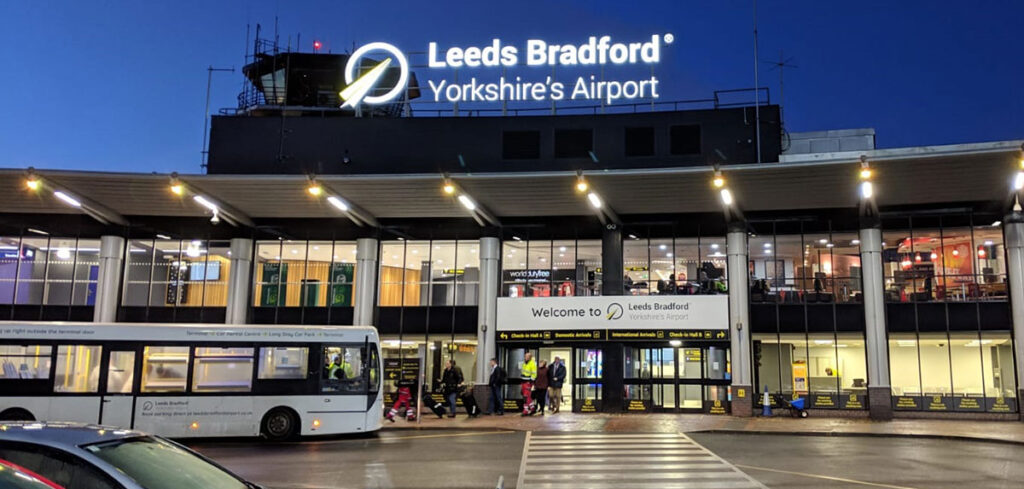Leeds Bradford Airport (LBA) has been awarded Level 2: Reduction Airport Carbon Accreditation from ACI Europe, bringing the airport a step closer to its 2030 net zero target.
The accreditation is in recognition of the airport’s actions to actively reduce its carbon footprint by 13% over 12 months. The airport achieved this through several measures, notably replacing runway and approach lighting with LEDs and investing in high-efficiency motion sensor lighting throughout the terminal building.
As a long-term goal, the airport will be aiming for the highest level of Airport Carbon Accreditation, Level 4+: Transition, which requires LBA to align its carbon management ambition with global climate goals and transform operations with absolute emissions reductions. This includes the emissions LBA controls, such as its energy usage, and those that the airport can influence, for example, third-party ground operations and flights. LBA is on track to move up to Level 3: Optimization in 2023.
Vincent Hodder, CEO of Leeds Bradford Airport, said, “Our net zero commitment is one the most ambitious made by a UK airport and this accreditation demonstrates that progress is being made to meet the challenge of decarbonization. We continue to work with our industry partners to bring new technologies and operational innovations to LBA to drive us forward on our roadmap to net zero.”
Olivier Jankovec, director general of ACI Europe, added, “Leeds Bradford Airport’s commitment to net zero by 2030 is underpinned by the tangible steps it is taking within Airport Carbon Accreditation towards enhanced carbon management and reduction. My highest praise goes to LBA’s team for their dedication in pursuing emissions reductions which in turn have made their achievement of Level 2: Reduction possible. I look forward to working with the airport closely on their progression towards full decarbonization within the program.”
In addition to reducing its own carbon emissions, LBA has also committed to measures that support reducing emissions produced by on-site business partners, such as airlines, to encourage and make it easier for partners to decarbonize their operations, as well as provide support to external sustainability plans. These wider plans include Jet2’s commitments to reduce CO2 per passenger by 10% by 2030, use UK-produced sustainable aviation by 2026 and operate 50% zero emission ground support equipment by 2023. Similarly, Ryanair has committed to 66g CO2 per passenger by 2030.

